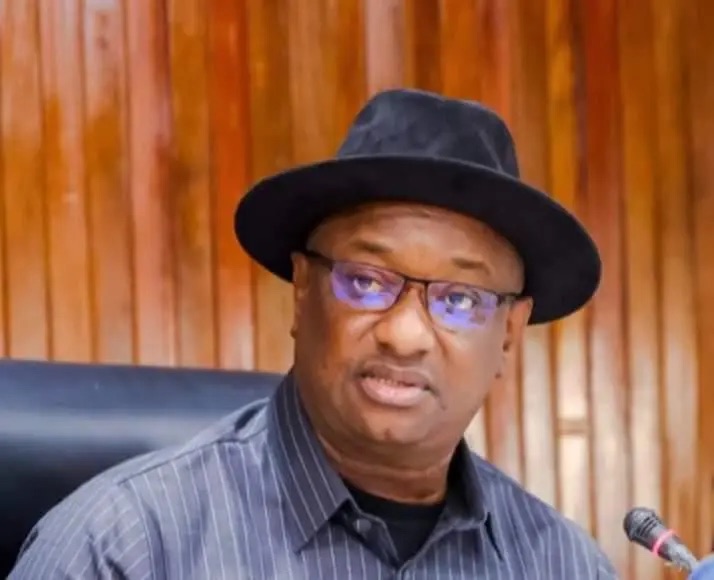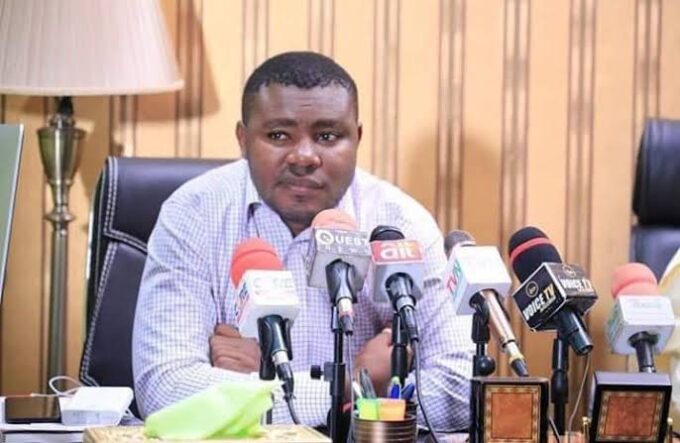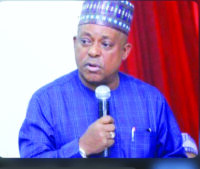From Juliana Taiwo-Obalonye, Abuja
The Federal Executive Council (FEC) presided over by President Bola Tinubu has on Thursday contracts exceeding ₦900 billion geared toward massive infrastructure upgrades across Nigeria’s aviation sector, to be funded under the government’s Renewed Hope Infrastructure Development Fund. Minister of Aviation, Festus Keyamo, revealed these landmark decisions following the council meeting, highlighting the renewed attention President Tinubu has given the aviation sector.
Addressing newsmen, Keyamo expressed sincere gratitude for the focus on aviation, stating, “Today, it was the turn of aviation to get the kind attention of the Renewed Hope Infrastructure Fund, and we are very grateful that His Excellency the President decided to turn his attention to aviation for massive infrastructural upgrades across the country.”
He described the day’s approvals as heartwarming to everyone involved in the aviation sector, highlighting a significant shift towards comprehensive modernization.
The centerpiece of the approvals is the full rehabilitation, upgrade, and modernization of the International Terminal One at Murtala Muhammed International Airport, Lagos. Unlike the patchwork repairs of the past, Keyamo clarified that this project would involve stripping the terminal down to its core structure—the carcass—and completely rebuilding all mechanical, electrical, and plumbing systems. “We have decided to strip it down to only the carcass, and then do the complete M and E again,” he explained. This extensive overhaul is solely funded by the Renewed Hope Infrastructure Development Fund and has been awarded to CCECC, the same firm responsible for constructing the new Terminal Two in Lagos.
Terminal 2 will also benefit from expansion, including the construction of a new apron, access roads, bridges, and various associated works. The minister underscored the scale by revealing, “The total cost for all these rehabilitations of Lagos airports will come up to ₦712,258,565,482.18, with a completion timeframe of 22 months.” The approval marks one of the largest single investments in Nigeria’s airport infrastructure in years.
Keyamo also elaborated on the upgrade at Malam Aminu Kano International Airport, where the council approved the rehabilitation of both runways and taxiways, including the upgrade of the airfield ground lighting to Category 2 (CAT 2) standard.
This upgrade, costing ₦46,392,454,624.04 and scheduled for completion within 24 weeks, is expected to significantly enhance flight safety—particularly during the hazy harmattan seasons that historically caused delays and cancellations.
He explained, “With the navigational aids we are bringing to Kano, you can land even in very hazy weather,” affirming the government’s commitment to improving operational reliability.
In addition to runway upgrades, the council approved a critical security enhancement project for Murtala Muhammed International Airport, involving the construction of a sophisticated 14.6-kilometer-long metal fence outfitted with advanced intrusion detection systems, CCTV cameras, illumination powered by solar floodlights, and an operational road for security patrols. Keyamo stressed the importance of this initiative by noting that despite no recent incidents in Lagos, vulnerabilities exist at airports nationwide. He cited an example where an aircraft once collided with a deer on a runway due to inadequate fencing, saying, “The type of sophisticated fence and equipment we are bringing in includes a modern command center that can detect any movement near the fence without human patrol. Anyone or anything close to the fence will be detected immediately, and the location pinpointed.” This ₦49,899,681,901.44 project is slated for a 24-month execution period.
Port Harcourt International Airport is also set to benefit from a runway and taxiway rehabilitation project, alongside an upgrade to its airfield ground lighting to CAT 2 level. The contract, costing ₦42,143,264,117.84, aims to improve safety and operational capacity where poor weather currently hampers flights.
Back at Lagos, additional amendments to runways 18 Left and 36 Right and portions of taxiways B and C were approved with total airfield lighting upgrades to CAT 2 LED standards. This ₦44,134,285,954.11 project, anticipated to span 30 weeks, will proceed simultaneously with the Terminal One reconstruction, emphasizing a holistic overhaul of the airport’s key infrastructure.
Further expanding Lagos airport’s capacity, the council approved reconstruction and conversion of apron areas at its domestic wing, totaling over 82,000 square meters. This includes phased development that allows for increased aircraft parking space, crucial for better traffic management. The cost for the apron project alone is ₦24,274,544,888.91 with a completion timeline around 17 and a half months.
In a major shift towards private sector involvement, Keyamo announced that the council has approved the full business case for a 30-year concession of Akano Ibiam International Airport, Enugu, popularly known as Enugu Airport. This concession also includes the airport’s unfinished cargo terminal facility. Keyamo highlighted the financial strains on the government operating smaller airports, noting, “Most of the smaller airports apart from the major ones are running at a loss. The profits we make from Kano, Lagos, and Abuja often go into keeping these others alive.”
He continued: “That has always been the plan of this administration—to concession some airports to private individuals and entities so they can run them profitably, especially the non-aeronautical parts such as conference centers and shopping malls. These non-aeronautical ventures generate as much, if not more, profit than aeronautical operations in modern airports around the world.” Keyamo emphasized that this privatization would turn loss-making airports into profitable assets, benefiting both the government and local communities.
To reassure stakeholders, the Aviation Minister stressed the inclusive approach of the government, especially in regards to airport unions. “I am not someone who ignores the unions. From the very start, I directed that they must be part of the committee, so at every point, the unions have been fully carried along in this process,” he affirmed.
The finalised agreement, including detailed consortium members and financial arrangements, will be made public in due course to maintain transparency and public trust. “At the right time, we will jointly address Nigerians and disclose all necessary details to ensure full transparency. Nigerians will know those in the consortium, their capacities, and all other critical information,” Keyamo pledged.
This 30-year concession arrangement signifies a new model for Nigerian aviation infrastructure management, signaling a long-term plan to attract private investments while modernizing airport facilities and creating sustainable profitability for the government and its partners.

















Leave a comment